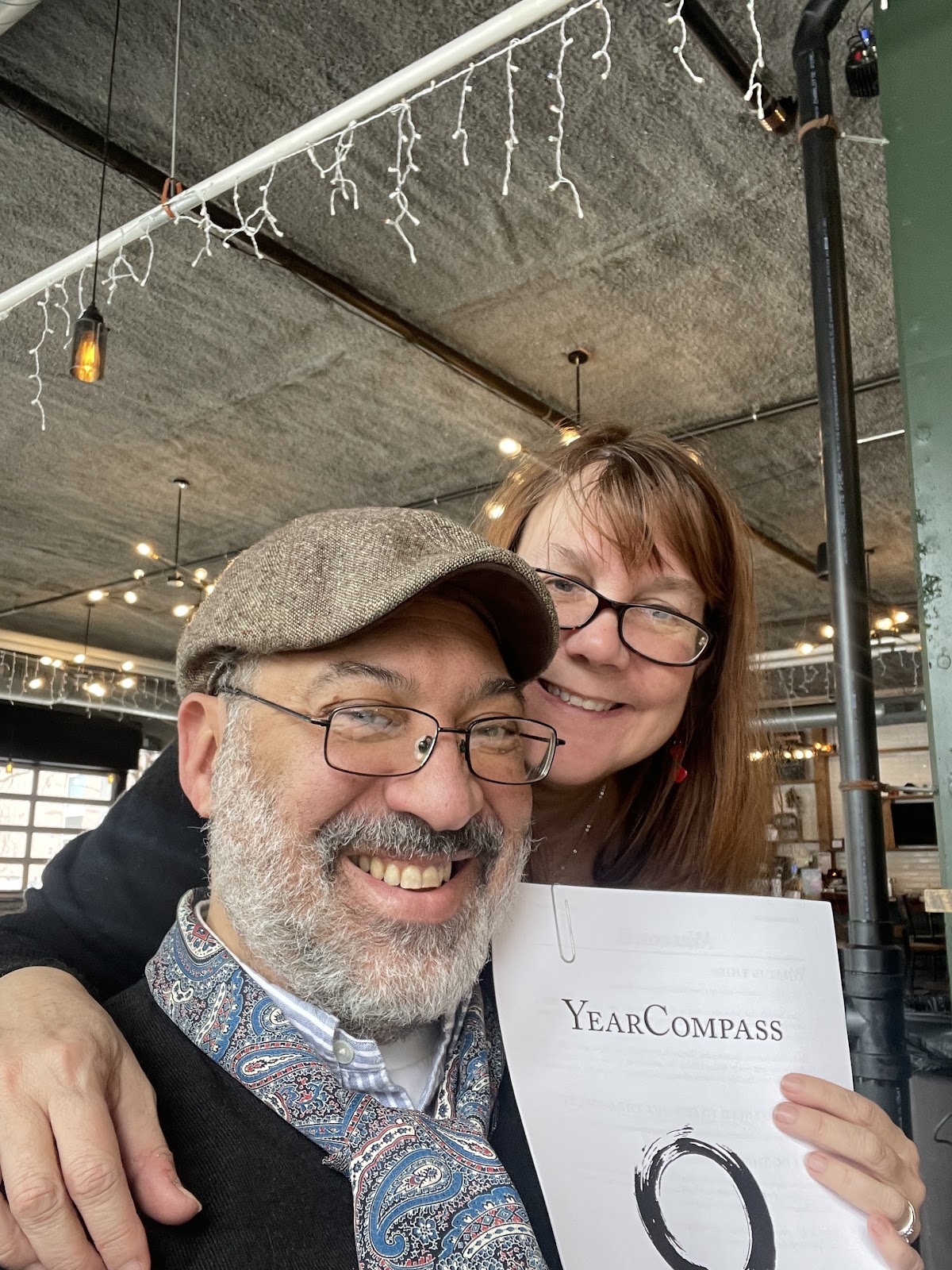Consider Yourself
Recently, Patrick and I went to a lunchtime launch event for a new product. Even before the launch, I became a big fan of the product. But I was sadly disappointed by the event itself, and I think there's a lot to learn from it.
The invitation promised a "some delicious food, followed by an overview of ---- from ----, VP of Operations, where he’ll talk about some amazing things we have up our sleeves, and how we will make a mark in the Twin Cities." It was at a lovely venue, the event sounded interesting, I support the product, and even though it's hard to get away in the middle of the day, I thought it would be worth it.
However, once we got there, it was painfully obvious that very little thought had been given to the audience. Several representatives from the company were there, and were genuinely interested in our opinions, but I could see right away that what we said was not what they expected.
Strangely for a noon event, the food was rather minimal — some raw veggies, chips and dip, lemonade and coffee — great cocktail hour food, but not exactly lunch fare. The reps sat down and continued the conversation with us, and were interesting to talk to, but it was also clear they did not know much about the Twin Cities area or market. There were far fewer attendees than apparently expected, and as such there was no presentation, so people sat around awkwardly until they finally decided it must be time to go. And there was nothing really to take away, except a gift card valid for new users only — which (almost by definition) none of the attendees were.
In short, a great new company experienced a major disconnect with their launch event, and I felt bad for them.
How do you avoid this?
1) Make your event special. No matter how big or small the audience is, make each person feel like the sole reason you were throwing this particular event was to recognize them.
2) Try to avoid acting surprised if what you hear is different from what you think, and realize what a valuable opportunity that is for you.
3) Watch the clock. If your event is around a mealtime, people are likely giving up a lunch break, or dinner with their family, or whatever to attend it — make it worth their while. Or, to keep catering costs down, have it at a weird time, and feature some really special food. Had the start time been 2pm, the same raw veggies been cut in flower shapes and the lemonade pink, I guarantee you people would have been more impressed.
4) Stick with what you tell people, but be flexible. In this situation, a quick "We're not going to do a formal presentation, so that we get more time to talk with each of you individually. But I'm ----, I'm the VP of Operations, and please, I want to get a chance to chat with you"would have given a focus to the afternoon.
5) Give them a take-away. You don't need to give a swag bag full of liquor and t-shirts (though everyone likes those), but even some kind of brochure or chocolate with your logo or key fob or something to remind them of the event carries your impact much farther than the 90 minutes your guest spent there.
As I said, it's en exciting company and I'll continue to be a fan. But as I walked away this afternoon, I thought of how much more of an event it could have been for all of us.
The invitation promised a "some delicious food, followed by an overview of ---- from ----, VP of Operations, where he’ll talk about some amazing things we have up our sleeves, and how we will make a mark in the Twin Cities." It was at a lovely venue, the event sounded interesting, I support the product, and even though it's hard to get away in the middle of the day, I thought it would be worth it.
However, once we got there, it was painfully obvious that very little thought had been given to the audience. Several representatives from the company were there, and were genuinely interested in our opinions, but I could see right away that what we said was not what they expected.
Strangely for a noon event, the food was rather minimal — some raw veggies, chips and dip, lemonade and coffee — great cocktail hour food, but not exactly lunch fare. The reps sat down and continued the conversation with us, and were interesting to talk to, but it was also clear they did not know much about the Twin Cities area or market. There were far fewer attendees than apparently expected, and as such there was no presentation, so people sat around awkwardly until they finally decided it must be time to go. And there was nothing really to take away, except a gift card valid for new users only — which (almost by definition) none of the attendees were.
In short, a great new company experienced a major disconnect with their launch event, and I felt bad for them.
How do you avoid this?
1) Make your event special. No matter how big or small the audience is, make each person feel like the sole reason you were throwing this particular event was to recognize them.
2) Try to avoid acting surprised if what you hear is different from what you think, and realize what a valuable opportunity that is for you.
3) Watch the clock. If your event is around a mealtime, people are likely giving up a lunch break, or dinner with their family, or whatever to attend it — make it worth their while. Or, to keep catering costs down, have it at a weird time, and feature some really special food. Had the start time been 2pm, the same raw veggies been cut in flower shapes and the lemonade pink, I guarantee you people would have been more impressed.
4) Stick with what you tell people, but be flexible. In this situation, a quick "We're not going to do a formal presentation, so that we get more time to talk with each of you individually. But I'm ----, I'm the VP of Operations, and please, I want to get a chance to chat with you"would have given a focus to the afternoon.
5) Give them a take-away. You don't need to give a swag bag full of liquor and t-shirts (though everyone likes those), but even some kind of brochure or chocolate with your logo or key fob or something to remind them of the event carries your impact much farther than the 90 minutes your guest spent there.
As I said, it's en exciting company and I'll continue to be a fan. But as I walked away this afternoon, I thought of how much more of an event it could have been for all of us.



Comments